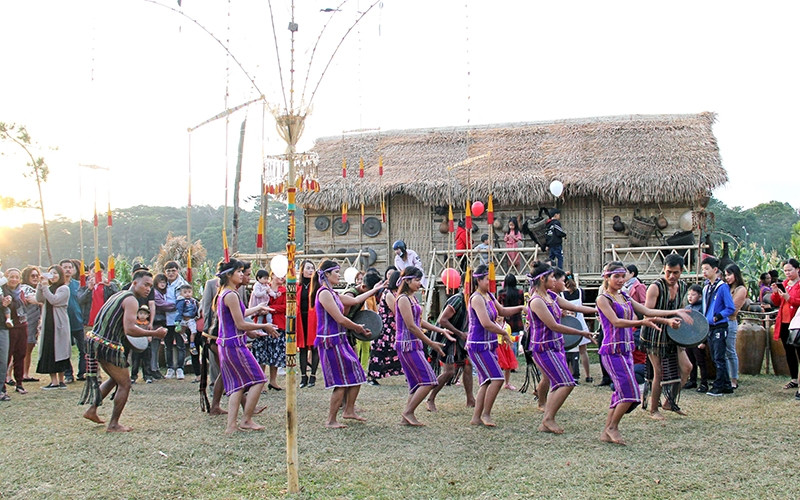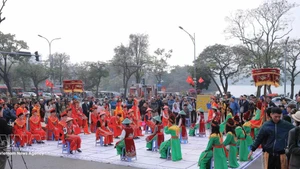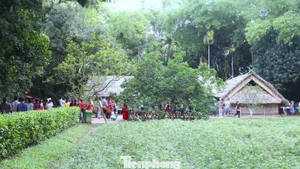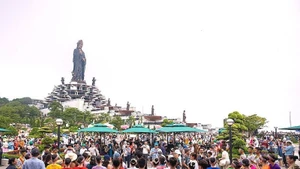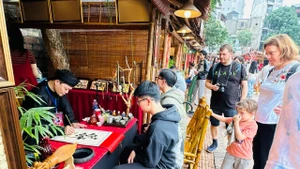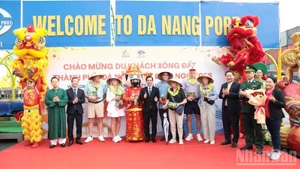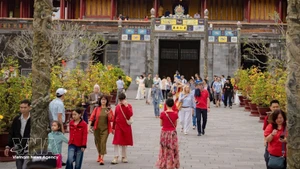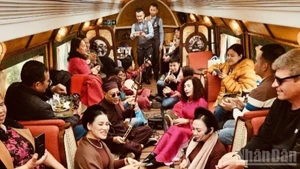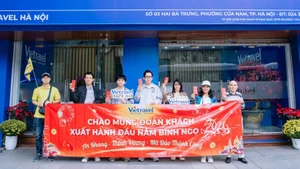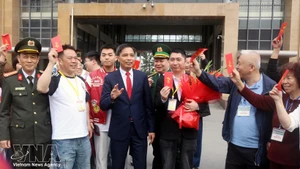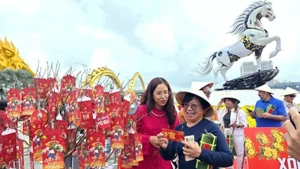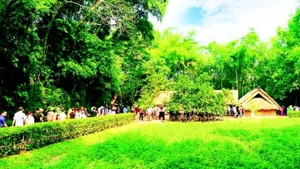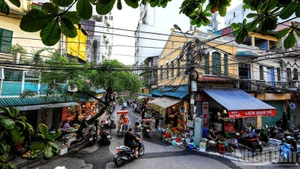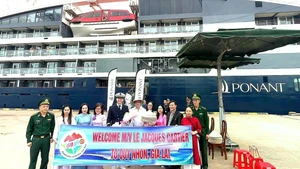Over recent years, the Central Highlands provinces have focused on preserving and promoting traditional cultural values associated with the development of community-based tourism, opening up opportunities to escape poverty sustainably, increase incomes and stabilize people's lives.
Director of the Department of Culture, Sports and Tourism of Kon Tum province Nguyen Van Binh, said: The preservation, promotion and spread of traditional cultural values of ethnic minorities in the province not only enhances spiritual life for the people but is also an important resource for the development of community-based tourism, contributing to changing the face of many ethnic minority villages and hamlets.
Deputy Director of the Department of Culture, Sports and Tourism of Dak Lak province Nguyen Thuy Phuong Hieu, added: Over the past years, the province has issued many programmes and projects on collecting, preserving and promoting the traditional identity culture of ethnic groups, especially local ethnic minorities; at the same time investing in funds for conservation, restoration and embellishment of ancient villages and historical and cultural relics associated with tourism development.
With 49 ethnic groups living in the Central Highlands region, it is a diverse, unique and rich cultural treasure. This is also an area with rich, diverse and unique natural resources and many scenic spots, historical and cultural relics, which are resonance factors for the development of various types of tourism, including community-based tourism. However, due to the impact of modern life, many traditional cultural features of ethnic minorities in the Central Highlands have been gradually lost or lost forever, more clearly showing the village space, ant house architecture, costumes, professions, and traditional festivals.
Although in recent years, the Ministry of Culture, Sports and Tourism and the Central Highlands provinces have paid attention to and invested in the conservation, preservation and promotion of traditional cultural values associated with tourism development, so far the results are limited.
Photo: Lam Dong restores traditional cultural rituals associated with tourism development.
According to Deputy Director of Lam Dong Department of Culture, Sports and Tourism Tran Thanh Hoai, over the past time, Lam Dong has effectively implemented the national action programme on the conservation of typical cultural heritage through projects on collecting, preserving and restoring traditional cultural festivals of ethnic minorities in the Central Highlands. However, it is necessary to effectively deal with the relationship between preserving and promoting cultural heritage values in contemporary life.
Deputy Director of the Department of Culture, Sports and Tourism of Dak Lak province Nguyen Thuy Phuong Hieu said: In August 2021, the Provincial People's Council issued a Resolution on supporting the development of community-based tourism in villages of ethnic minorities throughout the province over the 2021-2025 period.
On this basis, the Department has coordinated with relevant sectors to survey, and select 18 villages that meet the conditions for support; in which three villages are invested in community-based tourism from the project "Supporting the development of border areas" loaned by the Asian Development Bank (ADB) with a budget of 10.63 billion VND; the remaining 15 villages are supported from the provincial budget, of about 1 billion VND each.
This policy was born to help the conservation of traditional culture associated with the development of community-based tourism in the area to be more effective. When tourism develops, living standards are improved, and people have the conditions to invest in preserving traditional culture. This is the right direction to be replicated.
Leaders of the Departments of Culture, Sports and Tourism of the two provinces of Dak Nong and Kon Tum said that the village space and traditional culture of the local ethnic minorities is a visual image to introduce the locality to domestic and foreign tourists, creating a premise for socio-economic development.
Therefore, to preserve, it is necessary to improve the effectiveness of leadership, direction and organisation in performing the task of building and developing a culture in the new period. Localities need to analyse specifically the impacts of urbanisation, resettlement, and cultural acculturation on ethnic minorities; clearly define traditional cultural values; handle the relationship between tradition and modernity, conservation and development, culture and economy, from which an effective implementation plan can be proposed.
